
Extractive Industries and Society
Scope & Guideline
Navigating the Challenges of Extractive Industries for a Better Tomorrow
Introduction
Aims and Scopes
- Socio-Economic Impacts of Extractive Industries:
Research exploring how extractive industries affect local economies, livelihoods, and community well-being, including studies on employment, income distribution, and economic diversification. - Environmental Governance and Sustainability:
Investigations into the environmental impacts of mining and oil extraction, including debates on sustainability, environmental justice, and the effectiveness of governance frameworks. - Policy Analysis and Institutional Dynamics:
Examinations of the political and institutional frameworks that shape resource extraction, including governance models, regulatory effectiveness, and the role of local and national policies. - Social Movements and Community Engagement:
Studies on the role of civil society, local communities, and social movements in advocating for rights, accountability, and sustainable management of resources. - Gender and Intersectionality in Extractive Contexts:
Exploration of gender dynamics within the extractive industries, focusing on women's roles, experiences, and the implications of extractivism on gender equity. - Indigenous Rights and Resource Management:
Research addressing the rights of Indigenous peoples in relation to resource extraction, including issues of consent, governance, and the socio-cultural impacts of mining.
Trending and Emerging
- Green Transition and Critical Minerals:
There is a growing focus on the role of critical minerals in the green transition, examining how resource extraction can align with sustainability goals and the challenges posed by this transition. - Community Resilience and Adaptive Strategies:
Emerging research highlights community resilience in the face of extractive activities, exploring adaptive strategies that communities employ to cope with the socio-economic and environmental impacts of mining. - Health and Well-Being in Extractive Contexts:
An increasing number of studies are addressing the health implications of extractive industries, including mental health, occupational health risks, and the broader impacts on community well-being. - Transnational Governance and Accountability:
Research is increasingly focusing on transnational governance frameworks and accountability mechanisms, looking at how global standards and practices affect local resource management. - Digital Technologies and Data in Resource Management:
The integration of digital technologies and data analytics in managing extractive industries is gaining attention, reflecting the need for innovation in monitoring and governance. - Intersectionality in Resource Extraction:
There is a notable rise in research examining intersectionality in the context of extractive industries, particularly how various social identities impact experiences and outcomes related to resource extraction.
Declining or Waning
- Traditional Resource Extraction Models:
There appears to be a decrease in studies focusing solely on traditional models of resource extraction, as the discourse shifts towards more complex and integrated approaches that consider socio-environmental dynamics. - Unconventional Oil and Gas Development:
Research specifically centered on unconventional oil and gas extraction, such as fracking, has become less prominent, likely due to a broader focus on renewable energy transitions and their implications. - Single-Industry Focus:
There is a growing tendency to explore multi-industry interactions and their collective impacts, leading to a decline in studies that examine the effects of single extractive industries in isolation. - Historical Analyses of Extractive Practices:
The journal has seen a reduction in papers focusing solely on historical analyses of extractive practices, as contemporary issues and future-oriented research methods gain prominence. - Economic Growth Narratives Linked to Extractivism:
The narrative linking extractivism directly to economic growth is losing traction, with increasing skepticism about the sustainability and equity of such claims.
Similar Journals

Iberoamerican Journal of Development Studies
Advancing knowledge for a sustainable future.Welcome to the Iberoamerican Journal of Development Studies, a leading platform for academic discourse in the field of development studies, published by the UNIV ZARAGOZA DEV COOPERATION CHAIR within the SPANISH NETWORK DEV STUDIES. Since its inception in 2012, this open-access journal has provided a vital resource for researchers, professionals, and students alike, fostering interdisciplinary dialogue on pressing global challenges in development, geography, history, law, sociology, and political science. With an ISSN of 2254-2035 and an impressive Scopus ranking in History (percentile 80th) and varying quartiles across other disciplines, the journal stands out as a significant contributor to the academic landscape. It offers a unique perspective that bridges theory and practice, encouraging submissions that reflect innovative methodologies and critical analyses of socio-economic dynamics. With its commitment to open access, the journal ensures that vital research is accessible to a global audience, thereby advancing knowledge and policy-making in the field.
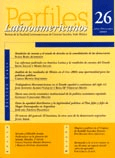
Perfiles Latinoamericanos
Pioneering Research for a Deeper Understanding of Latin AmericaPerfiles Latinoamericanos is a prominent academic journal published by FLACSO-MEXICO, dedicated to advancing scholarly discourse in the fields of Sociology and Political Science. Since its inception in 1992, this Open Access journal has made significant contributions to the understanding of Latin American societal and political dynamics, providing researchers, professionals, and students with valuable insights and analysis. With an ISSN of 0188-7653 and an E-ISSN of 2309-4982, the journal has established itself as a reliable source of knowledge, boasting a respectable Scopus rank within the 36th percentile among its peers. As of 2023, it holds a Q3 ranking in Sociology and Political Science, reflecting its commitment to maintaining rigorous academic standards and fostering impactful scholarship. Researchers can easily access its published articles, contributing to a wider dialogue on critical issues affecting the region. The journal’s coverage span from 2008 to 2024 affirms its ongoing relevance in the academic community.
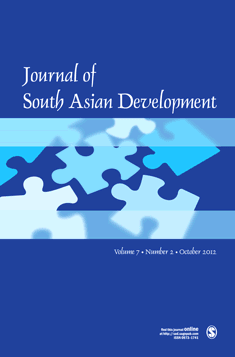
Journal of South Asian Development
Exploring the Dynamics of South Asian ProgressThe Journal of South Asian Development is a premier academic publication dedicated to advancing the critical study of socio-economic dynamics within the South Asian region. Published by SAGE Publications India Pvt Ltd, this journal serves as a vital forum for scholars, researchers, and practitioners interested in exploring diverse interdisciplinary approaches to development challenges, policies, and practices in South Asia. With an impressive impact factor that recognizes its contributions to the fields of Business and International Management, Development, Economics, and History, the journal maintains a distinguished presence in Q3 quartiles across multiple categories as of 2023. Researchers can also benefit from its strong rankings in relevant Scopus categories, illustrating its academic rigor and relevance. Although currently not an open-access journal, it provides valuable insights and analyses from 2006 to 2024, continuing to foster innovative discussions and empirical investigations that are essential for understanding the complexities of development in this vibrant region.
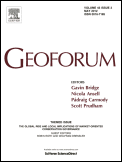
GEOFORUM
Pioneering Insights in Sociology and Political ScienceGEOFORUM, a distinguished academic journal published by PERGAMON-ELSEVIER SCIENCE LTD, stands as a leading platform for scholarly discourse in the fields of Sociology and Political Science. Established in 1970 and currently extending its reach until 2024, the journal is recognized for its significant contribution to understanding complex socio-political phenomena on a global scale. With an impressive Q1 category ranking in the 2023 Scopus Quartile and an exemplary 94th percentile ranking among its peers, GEOFORUM positions itself as a vital resource for researchers, professionals, and students alike. The journal, while following a traditional access model, remains essential for disseminating impactful research that addresses contemporary socio-political issues. It not only enriches academic knowledge but also serves as a cornerstone for policy-making and sociological inquiry, making it a must-read for anyone invested in the humanities and social science fields.

Journal of Environmental Accounting and Management
Empowering research to tackle environmental challenges.The Journal of Environmental Accounting and Management (ISSN: 2325-6192, E-ISSN: 2325-6206), published by L & H SCIENTIFIC PUBLISHING, LLC, serves as a vital platform for interdisciplinary discourse at the intersection of environmental science, accounting, and strategic management. With a commitment to addressing the growing complexities of ecological and management challenges in contemporary society, this journal, active from 2013 to 2024, contributes valuable insights into sustainable practices and environmental accountability. Although categorized in the lower quartiles in various fields, including Accounting and Ecology, it maintains significant rankings in Urban Studies, and is poised for growth with an emerging focus on practical implications for policy and law. Moreover, the journal's open access model ensures that research is readily available to a global audience, fostering collaboration among researchers, professionals, and students alike. As a resource that bridges theoretical frameworks with real-world applications, the Journal of Environmental Accounting and Management is positioned to inspire innovative solutions for a sustainable future.
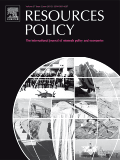
Resources Policy
Pioneering Knowledge at the Intersection of Resources and PolicyResources Policy, published by ELSEVIER SCI LTD, is a prestigious journal that has been at the forefront of advancing knowledge in the fields of Economics, Law, and Sociology since its inception in 1974. With an impressive Q1 ranking in multiple disciplines—including Economics and Econometrics, Law, Management, Monitoring, Policy and Law, and Sociology and Political Science—this journal showcases high-impact research and insights that are vital for academics, policymakers, and practitioners alike. With Scopus rankings placing it in the top percentiles of its respective categories, Resources Policy fosters interdisciplinary dialogue, promoting innovative solutions and policies concerning the sustainable management and use of resources. While currently not an open-access publication, the journal ensures that its rich content is accessible to those pursuing rigorous research and professional excellence. As we approach its 50th anniversary in 2024, Resources Policy continues to be an essential platform for critical discussions, evaluation, and advancements in resource management.
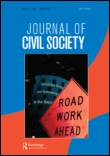
Journal of Civil Society
Connecting Scholarship with the Pulse of Social MovementsThe Journal of Civil Society, published by Routledge Journals, Taylor & Francis Ltd in the United Kingdom, serves as a pivotal platform for scholarly discourse within the fields of sociology and political science. With an ISSN of 1744-8689 and an E-ISSN of 1744-8697, this esteemed journal has consistently maintained high academic standards, achieving a Q2 categorization in the 2023 rankings. Ranking #470 out of 1466 in Scopus, it represents the upper 67th percentile in its field, underlining its influence and relevance. The journal focuses on the intersection of civil society, democracy, and social change, providing a critical avenue for researchers and practitioners to explore the role of civil society in contemporary governance and social movements. Although it does not currently offer open access, its well-curated content remains indispensable for professionals and academics seeking to deepen their understanding of social dynamics in the current landscape. With a publication timeline extending from 2010 to 2024, the Journal of Civil Society is set to continue its vital contribution to the academic community, fostering knowledge and insight in these essential subjects.
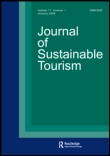
Journal of Sustainable Tourism
Pioneering research for a greener, more responsible tourism industry.The Journal of Sustainable Tourism, published by Routledge Journals, Taylor & Francis Ltd, is a leading interdisciplinary journal that focuses on the complex relationships between sustainable tourism, environmental integrity, and community well-being. Established in 1993, this journal has become an essential platform for academics and professionals, showcasing innovative research that advances sustainable practices in tourism. With an impressive impact factor, and ranked in the Q1 category in both Geography, Planning and Development and Tourism, Leisure and Hospitality Management, it serves as an authoritative source of knowledge for researchers looking to enrich their understanding of sustainable tourism. Addressing crucial issues within the field, it aims to inform policy and practice while promoting solutions that are ecologically viable and socially responsible. The journal is based in the United Kingdom and continues to thrive as a comprehensive resource for those dedicated to enhancing the sustainability of global tourism.
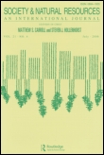
SOCIETY & NATURAL RESOURCES
Innovating Solutions for Resource Management ChallengesSOCIETY & NATURAL RESOURCES is a premier academic journal published by Taylor & Francis Inc, dedicated to fostering interdisciplinary research at the intersection of societal dynamics and environmental stewardship. With an ISSN of 0894-1920 and an E-ISSN of 1521-0723, this influential journal has been a significant contributor to the field since its inception in 1988, and continues to shape discourse through 2024. Recognized for its rigorous scholarship, SOCIETY & NATURAL RESOURCES boasts an impressive Q1 ranking in Development and Sociology and Political Science, and a notable Q2 ranking in Environmental Science (miscellaneous) as of 2023. Its Scopus rankings highlight its impact, with impressive percentiles across multiple categories, including the top 15% in Sociology and Political Science. The journal provides a vital platform for researchers, professionals, and students to engage with critical issues regarding resource management and sustainability, making it an essential resource for those seeking to understand the complex interplay between societal needs and natural environments.

Agricultural and Resource Economics-International Scientific E-Journal
Innovating research for a greener future.Agricultural and Resource Economics-International Scientific E-Journal is a leading open-access publication dedicated to advancing the fields of agricultural and resource economics. Published by the esteemed INST EASTERN EUROPEAN RESEARCH & CONSULTING since 2015, this journal provides a vital platform for innovative research and discourse, particularly within the context of Eastern Europe. With an impressive Q2 ranking in Agricultural and Biological Sciences and Q3 rankings in both Business, Management and Accounting and Marketing, it serves as a key resource for academics and practitioners alike, fostering collaboration and knowledge exchange. The journal's commitment to accessibility and inclusivity is evident through its open-access policy, allowing researchers from around the globe to share and benefit from cutting-edge findings. Set against the backdrop of a rapidly evolving agricultural landscape, this journal plays a crucial role in exploring the intersection of economics, sustainability, and resource management, making it an essential read for anyone invested in the future of these critical fields.